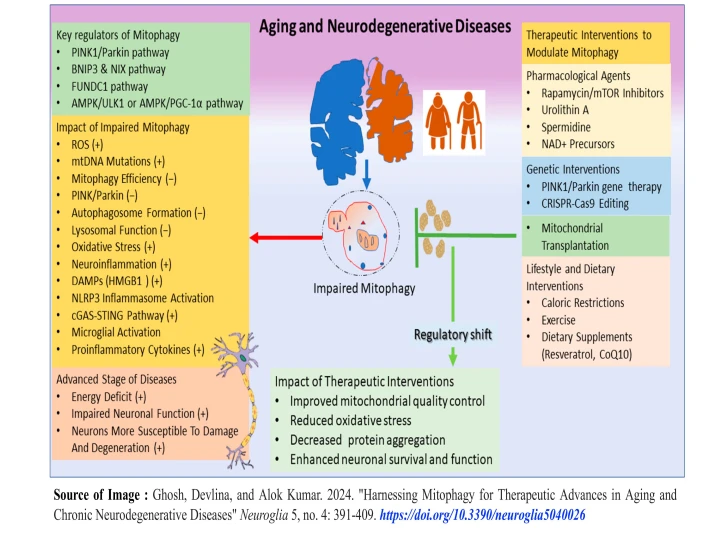
The health of our cells depends on the functionality of their powerhouses i.e. mitochondria. When these crucial organelles malfunction, they not only fail to produce energy efficiently but also become sources of harmful by-products, such as reactive oxygen species (ROS). Miitophagy, a specialized cellular process designed to identify and remove damaged mitochondria, ensuring cellular vitality and preventing neurodegenerative diseases like Alzheimer’s and Parkinson’s disease.
Mitophagy works like a quality control system. It selectively isolates dysfunctional mitochondria into autophagosomes, which then fuse with lysosomes to dismantle and recycle the faulty components. However, as we age, mitophagy efficiency declines. The accumulation of damaged mitochondria triggers oxidative stress and neuroinflammation, causing neuronal death and diseases.
Promising research highlights the therapeutic potential of enhancing mitophagy. Agents like urolithin A and rapamycin have shown efficacy in animal models, improving cognitive functions and reducing neuroinflammation. Lifestyle interventions such as caloric restriction and exercise also promote mitophagy, fostering resilience against neurodegenerative diseases.
Still, challenges remain. Understanding the molecular intricacies of mitophagy is essential for developing precise therapies. Unchecked mitophagy may deplete mitochondria excessively, disrupting energy balance in high-demand organs like the brain.
By harnessing mitophagy's capabilities, we open avenues to combat age-related diseases, enhancing not just lifespan but quality of health.
https://doi.org/10.3390/neuroglia5040026


No Any Replies to “Mitophagy: A Key to Combating Aging and Neurodegenerative Diseases”
Leave a Reply